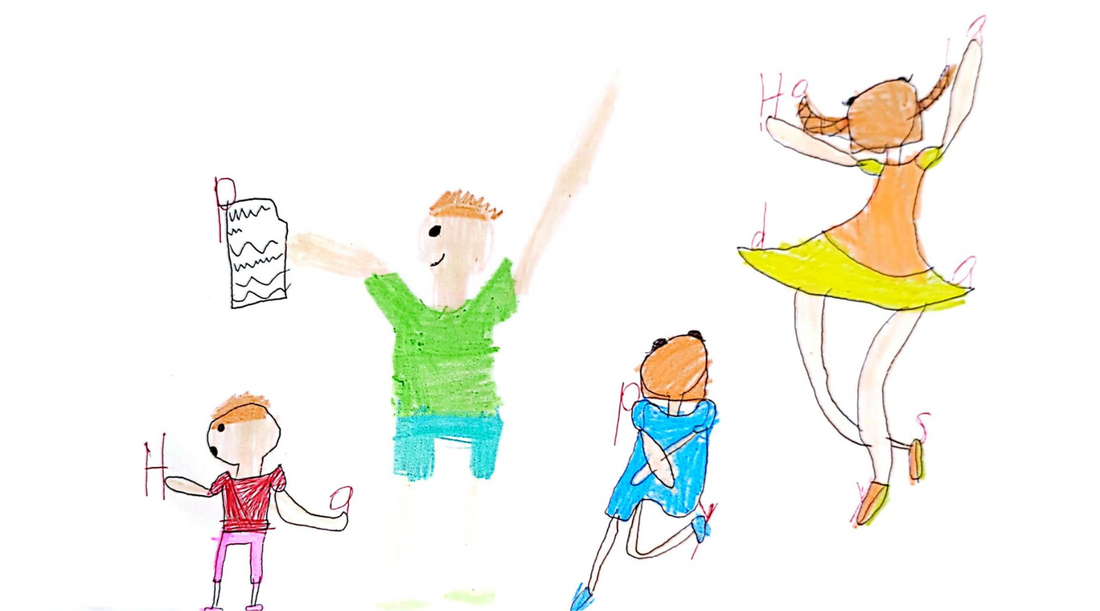Did you know that different types of play contribute to various aspects of your children’s growth? Play isn’t just a way for kids to pass the time—it’s how they learn about the world, practice new skills, and develop emotionally, physically, and socially.
Understanding the types of play and their benefits can help you support your child’s development more intentionally. Let’s explore the main types of play and what children can gain from each.
Physical Play
Physical play involves movement and activities that help children develop their motor skills. Whether it’s running, jumping, or playing with a ball, physical play is critical for healthy growth.
Physical play can be found while playing tag, riding a bike, climbing on playground equipment, or dancing.
Strength, coordination, and balance.
Fine and gross motor skills (such as small muscle movements like grasping, or large ones like running)
Spatial awareness and body control.
Constructive Play
This play type is about building, creating, and manipulating objects. Children engage in constructive play when they stack blocks, assemble puzzles, or even use art supplies to create something new.
Constructive Play can be found while building towers with blocks, constructing Lego models, or making crafts with clay.
Problem-solving and critical thinking skills.
Fine motor skills and hand-eye coordination.
Planning and spatial reasoning.
Creativity and innovation.
Pretend Play (Imaginative or Role Play)
Pretend play involves using imagination to act out scenarios or perform different roles, such as pretending to be a doctor, superhero, or teacher. This type of play is crucial for cognitive and social development.
Pretend play can include playing house, pretending to cook, playing with cars and dolls, or dressing up as characters.
Pretend play can support:
Language and communication skills through storytelling and dialogue.
Social skills as they negotiate roles and scenarios with others.
Emotional regulation as they explore different feelings in a safe, imaginative space.
Creativity and the ability to think abstractly.
Social Play
Social play is when children play together, interacting with peers or adults. This type of play helps children learn how to collaborate, share, and work within group dynamics.
Social play can be found while playing board games, engaging in team sports, working together on a group project like building a fort, or even playing house among friends.
Social play can support:
Social skills like cooperation, sharing, and taking turns.
Communication and conflict resolution skills.
Empathy as they learn to consider others’ perspectives.
Symbolic Play (Creative Play)
In symbolic play, children use objects, actions, or ideas to represent something else. This includes drawing, painting, singing, or playing an instrument, where creativity takes center stage. Symbolic play can be drawing pictures, playing with musical instruments, or pretending a stick is a magic wand.
Creative play supports:
Abstract thinking is essential for language development and problem-solving.
Artistic expression and creativity.
Emotional expression as they channel their feelings through music, art, or other creative outlets.
Games with Rules
Games with rules include structured activities with clear guidelines and expectations, such as board games, card games, or sports. These games teach children important life lessons about following rules and working within boundaries. Some examples are chess, soccer, or classic board games.
Games with rules can support:
Understanding of fairness, rules, and strategy.
Patience and self-control as they wait their turn or handle winning and losing.
Cognitive skills like planning, logic, and critical thinking.
Sensory Play
Sensory play engages children’s senses—touch, smell, sight, taste, and hearing—through activities that stimulate their sensory experiences. Sensory play is especially important for toddlers and young children as they explore the world.
Sensory play can be experienced while playing with water or sand, exploring sensory bins filled with objects of different textures, or experimenting with finger paints.
Sensory play can support:
Sensory processing skills, which help them understand and respond to sensory stimuli.
Fine motor skills as they manipulate objects.
Language development as they describe textures, smells, and sensations.
Emotional regulation, as sensory play can have a calming effect.
Exploratory Play
Exploratory play is when children learn by investigating their environment. They might explore new toys, materials, or spaces, figuring out how things work through hands-on interaction.
Some examples are when children examine nature during a walk, explore the features of a new toy, or experiment with different objects in a sensory bin.
Exploratory play can support:
Curiosity and critical thinking as they discover new things.
Problem-solving skills through trial and error.
Independence as they make choices about what to explore and how to interact with their surroundings.
Rough-and-Tumble Play
Rough-and-tumble play is physical play that is energetic but non-aggressive, such as wrestling, play fighting, or chasing games. This type of play helps children understand boundaries and physical limits, such as wrestling, pillow fights, or running and chasing games.
Rough-and-tumble play can support:
Physical coordination and strength.
Social skills as they learn to recognize when play is becoming too rough.
Emotional regulation as they navigate excitement and self-control.
Why Different Types of Play Matter
Each type of play offers unique opportunities for children to grow, learn, and develop critical skills. By understanding the different types of play, you can provide a variety of play experiences that nurture your child’s physical, cognitive, social, and emotional development. Whether it’s running around in the backyard or building an elaborate city with blocks, play is the foundation for learning.
Remember, play isn’t just something your child does for fun—it’s how they explore, learn, and grow! Keep encouraging them to play, and watch as they develop the skills they need for the future.

